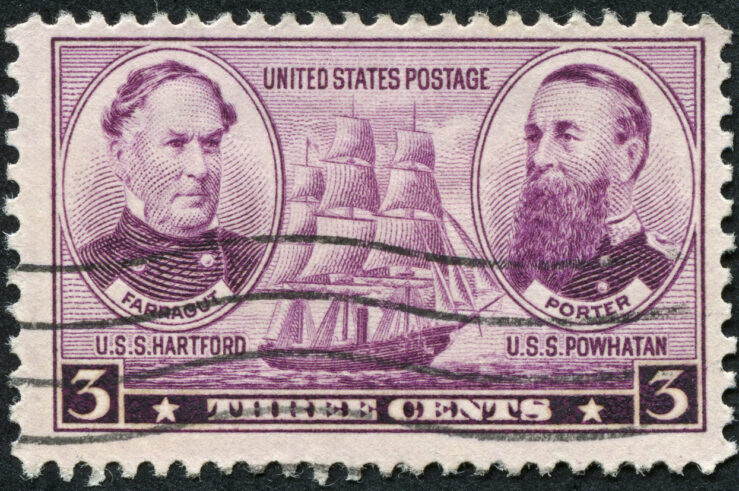Showing results for: “digital markets act”
Damn the Economics, Full Speed Ahead!
A White House administration typically announces major new antitrust initiatives in the fall and spring, and this year is no exception. Senior Biden administration officials kicked off the fall season at Fordham Law School (more on that below) by shedding additional light on their plans to expand the accepted scope of antitrust enforcement. Their aggressive ... Damn the Economics, Full Speed Ahead!
Bootleggers and Baptists, Madison Style
Last Wednesday, the Wisconsin Supreme Court heard oral argument on whether to reinstate an antitrust lawsuit against taverns around the University of Wisconsin (story here). In 2002, the taverns agreed to eliminate drink specials after 8:00 PM on Fridays and Saturdays. A group of students filed a class action lawsuit against the taverns for injunctive ... Bootleggers and Baptists, Madison Style
More on getting rid of LLC fiduciary duties
I have frequently discussed the ongoing jurisprudential drama in Delaware on how firms can avoid fiduciary duties. The basic setup here is that Delaware allows LLCs and other unincorporated firms to completely eliminate fiduciary duties. But they have to do it carefully. Here’s my most recent discussion of the state of play on what that ... More on getting rid of LLC fiduciary duties
One Step Forward: The Supremes Add Some Bite to Environmental Cost-Benefit Analysis
Today, in Michigan v. EPA, a five-Justice Supreme Court majority (Antonin Scalia, joined by Chief Justice John Roberts, and Justices Anthony Kennedy, Clarence Thomas, and Samuel Alito, with Thomas issuing a separate concurrence) held that the Clean Air Act requires the Environmental Protection Agency (EPA) to consider costs, including the cost of compliance, when deciding ... One Step Forward: The Supremes Add Some Bite to Environmental Cost-Benefit Analysis
Time to Repeal the FTC’s Common Carrier Jurisdictional Exemption (Among Other Things)?
Section 5(a)(2) of the Federal Trade Commission (FTC) Act authorizes the FTC to “prevent persons, partnerships, or corporations, except . . . common carriers subject to the Acts to regulate commerce . . . from using unfair methods of competition in or affecting commerce and unfair or deceptive acts or practices in or affecting commerce.” ... Time to Repeal the FTC’s Common Carrier Jurisdictional Exemption (Among Other Things)?
Chevron and the Politicization of Law (or, Chevron Step Three)
A recent exchange between Chris Walker and Philip Hamburger about Walker’s ongoing empirical work on the Chevron doctrine (the idea that judges must defer to reasonable agency interpretations of ambiguous statutes) gives me a long-sought opportunity to discuss what I view as the greatest practical problem with the Chevron doctrine: it increases both politicization and polarization of ... Chevron and the Politicization of Law (or, Chevron Step Three)
Why Negative Externalities Don’t Justify a Tax on Employers that Drive Up Demand for Housing
Writing in the New York Times, journalist E. Tammy Kim recently called for Seattle and other pricey, high-tech hubs to impose a special tax on Microsoft and other large employers of high-paid workers. Efficiency demands such a tax, she says, because those companies are imposing a negative externality: By driving up demand for housing, they ... Why Negative Externalities Don’t Justify a Tax on Employers that Drive Up Demand for Housing
The new associates
The WSJ reports on contract lawyering: When he decided to become a lawyer, Jose Aponte followed a familiar path: He took the LSAT, spent more than $100,000 on law school, took a grueling bar exam and paid for continuing education. * * * For 10 to 12 hours a day—and sometimes during graveyard shifts—contract attorneys ... The new associates
The Final Order in the FTC’s Google standard-essential patents case and the continuing danger to standard-setting
On July 24, the Federal Trade Commission issued a modified complaint and consent order in the Google/Motorola case. The FTC responded to the 25 comments on the proposed Order by making several amendments, but the Final Order retains the original order’s essential restrictions on injunctions, as the FTC explains in a letter accompanying the changes. ... The Final Order in the FTC’s Google standard-essential patents case and the continuing danger to standard-setting
Judicial dissolution of NY LLCs
In my recent paper, Close Corporation Remedies and the Evolution of the Closely Held Firm, written for a symposium on the famous Massachusetts close corporation case Wilkes v. Springside Nursing, I focused on the LLC alternative to close corporations. I observed that by providing a clearly non-corporate structure of default rules and a variety ... Judicial dissolution of NY LLCs
Patent Holdup, Antitrust and Innovation: Harness or Noose?
Expanding on the themes in this post from the TOTM symposium book review of Professor Carrier’s new book on “Harnessing the Power of Intellectual Property and Antitrust Law” to encourage innovation, I’ve posted an essay co-authored with a very talented former student and research assistant, Aubrey Stuempfle. The essay expands on some of the themes ... Patent Holdup, Antitrust and Innovation: Harness or Noose?
Criticizing the FTC’s Proposed Order in the Google Patent Antitrust Case
I filed comments today on the FTC’s proposed Settlement Order in the Google standards-essential patents (SEPs) antitrust case. The Order imposes limits on the allowable process for enforcing FRAND licensing of SEPs, an area of great complexity and vigorous debate among industry, patent experts and global standards bodies. The most notable aspect of the order ... Criticizing the FTC’s Proposed Order in the Google Patent Antitrust Case






